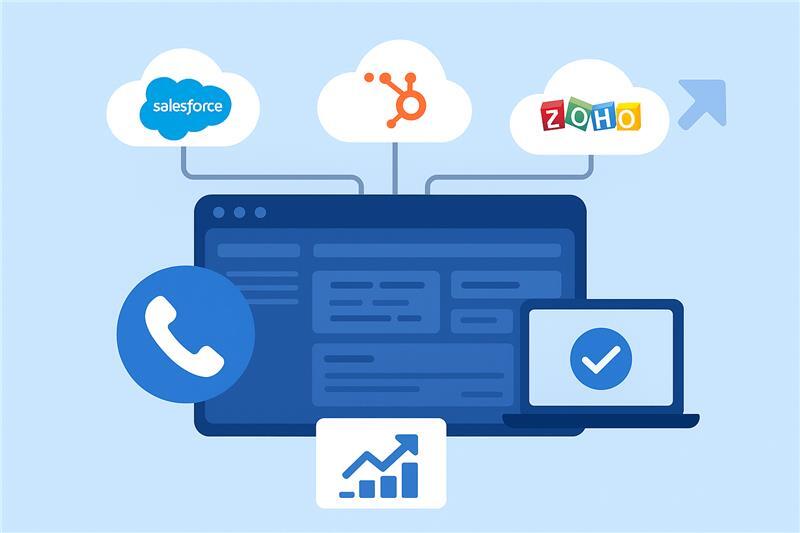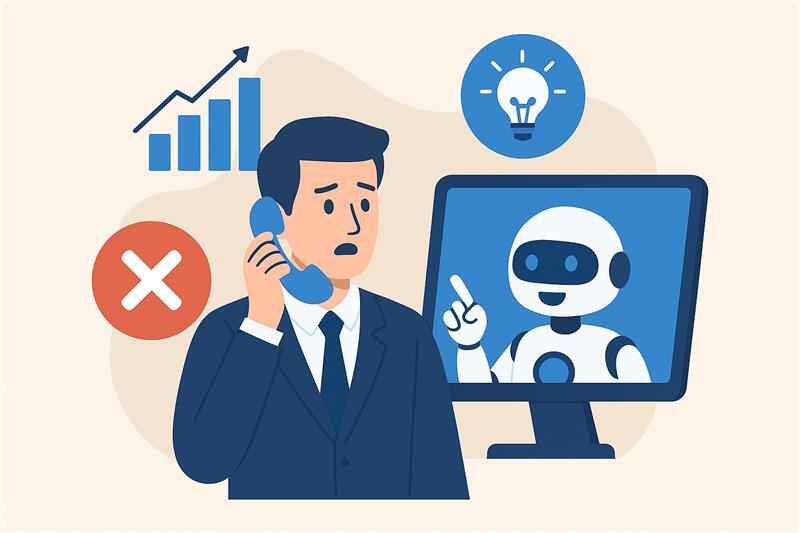
Hard Sell Vs Soft Sell Examples To Implement On Your Next Sales Call
You probably know about hard-selling and soft-selling if you’re familiar with B2B sales. Experienced sales professionals make smart use of hard-sell and soft-sell pitches to win more customers. However, have you ever tried to make a comparison between hard-selling and soft-selling?
The hard-sell is a direct approach to selling, whereas the soft-sell is a more subtle way to sell products or services. But it’s a lot more nuanced than that. So if you’re a budding sales professional, you must learn the basics of hard-sell and. soft-sell. That way, you can apply these concepts in your sales pitches.
So, without further ado, let’s get into the details of the soft-sell vs. hard-sell discussion with relevant examples.

What is Hard-Selling?
The hard-sell is more of an aggressive way of selling your products and services. When a sales rep leverages on directness to close sales deals, that’s when we call it hard-selling. When a sales rep plans to take the hard-sell route, they tend to prepare strong and to-the-point sales pitches. The hard-selling approach works best when sales reps have only one shot at closing a sales deal or if there’s a short deadline. In these cases, creating urgency usually helps close deals faster.
What Is Soft-Selling?
The concept of soft-selling is completely different from that of a hard-sell. In the case of soft-selling, reps try to persuade the customers through a subtle pitch. Reps believe in an empathetic approach and they try to perform frequent rounds of trial and error to convert a lead. However, a soft-seller needs a lot of time to achieve success. Soft-selling techniques are employed when there’s no urgency or a pressing deadline or in cases where the sales cycles are longer.
Hard-Sell Vs. Soft-Sell - Examples To Implement On Your Next Sales Call

Let’s find out more about hard-sell vs. soft-sell:
- The hard-sell is a straightforward selling approach. Here you directly ask a lead to buy your products and services. The soft-sell is an indirect approach where you try to remain empathetic.
- In the case of a hard-sell, a sales rep’s only aim is to convert a lead as soon as possible. Alternatively, a sales rep following a soft-selling approach focuses on relationship-building and eventually persuading the prospects to buy their product.
- The hard-sell is a traditional approach, where reps focus solely on closing a client. It does have a negative image, considering that it sometimes becomes extremely forceful on customers. The soft-sell is more of a modern and intuitive technique where reps try to make the prospects as comfortable as possible. Soft-selling is more about getting into the good books of your prospect first.
- Using hard-selling tactics is convenient when the prospect requires an immediate solution to their problems or if it’s a one-time purchase. On the contrary, a soft-selling approach is more convenient when a brand is striving for loyalty and customer retention. Here, a brand tries to build a relationship with the customers for the long term.
What Are The Challenges Associated With The Hard-Sell?

Hard-selling has some critical challenges. Here are a few that sales reps might encounter:
1. Hard-selling can distance your prospects
Hard-selling may not click for reps all the time. If you’re a newbie and don’t know how to craft your hard-sell pitch, you’re very likely to alienate your prospects instead of converting them. Prospects generally don’t prefer the pressure associated with hard-selling. Hence, they can easily dismiss a hard-sell call without even listening to the pitch.
2. Hard-selling is a one time process
You may get a customer to buy your products or services with a hard-sell, but that’s typically a one-time thing. Repeat purchase is very rare in hard-selling. So, if you’re considering a hard-sell and soft-sell comparison, make a note of this challenge. Since hard-selling doesn’t focus on building relationships, customers don’t have any emotional connection with the brand.
Looking for a solution?
Want to master your hard-sell pitch? You need sales enablement software that can coach your reps and help them understand their strengths and weaknesses. That way, sales managers can figure out which reps can hard-sell better. Try SalesKen today and become a pro in hard-selling.
What Are The Challenges Associated With Soft-Selling?

Soft-selling is a great long-term sales strategy, but it has several unique challenges:
1. Building relationships can be hard!
In the case of soft-selling, relationship-building gets the highest priority. But is it easy to build trust? Not really! Approaching a client, researching their pain points, staying connected over multiple channels or following up so regularly can be overwhelming for sales reps. Also, you should be able to communicate with complete transparency, so that the prospects think of your brand as loyal and honest.
2. Closing deals can take time
When soft-selling, closing sales deals can take time! You can never force your prospects to buy from you. You have to wait and keep following up with them for as long as they need to make a decision.
3. You may end up nurturing less valuable leads
What if you’re nurturing leads that are not even ready to make a purchase? This is a very common challenge of soft-selling. The reps often end up spending a lot of time nurturing leads that are not valuable. The result is unnecessary delay and excess costs in terms of time, money and human resources.
Looking for a solution?
To avoid these challenges of soft-selling, opt for sales analytics software that can help you gauge a prospects’ intent. This way, reps can build their rapport up only with valuable leads and win more sales deals in less time.
Salesken, a Sales analytics software can help you capture customers’ intent with in-depth visibility into a customer-rep conversation. Hence, you can easily understand which reps can pull off the soft-sell strategy better.
In Conclusion
We hope you understood the primary differences between hard-sell and soft-sell. So, which strategy are you planning to adopt? Is it hard-sell or is it soft-sell or is it a mix of both? Let us know in the comments section!
Whether your sales reps are hard-selling or soft-selling, Salesken can augment your sales reps’ intelligence by leveraging the power of AI. Our state-of-the-art real-time cueing and post-call data analytics can help you close sales faster and easier than ever before. So what are you waiting for Book your demo now!
FAQs
What is an example of a hard sell?
An example of a hard sell is when a salesperson uses urgency and pressure to push a customer into making an immediate purchase. For instance:
"This offer ends today—if you don’t buy now, you’ll miss out on a huge discount!"
This approach focuses on quick conversion, often using limited-time deals or emotional pressure to close the sale fast.
What is an example of a soft sell?
An example of a soft sell is when a salesperson focuses on building trust and guiding the customer without pressure. For instance:
"Based on what you've shared, this solution might be a good fit. Let me know if you'd like more details or a demo."
This approach feels more like a helpful conversation than a sales pitch, making the customer feel supported and in control.
What are the three types of selling?
The three types of selling are transactional selling (focused on quick, one-time sales), consultative selling (based on understanding customer needs), and solution selling (offering a complete solution to a specific problem).

.png)

